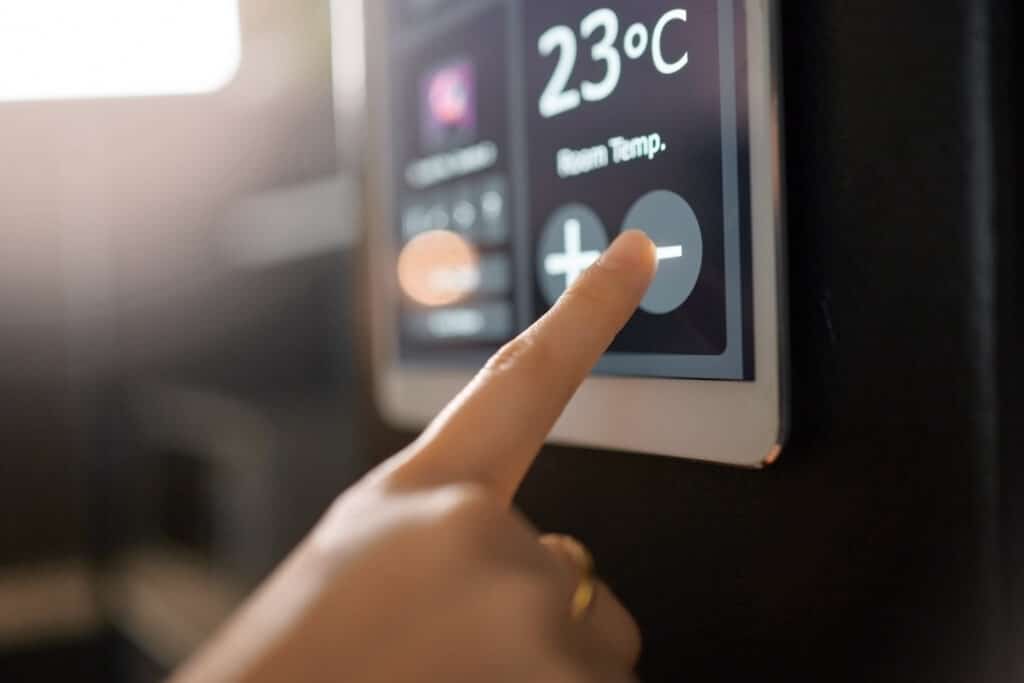Choosing the right air filter for your home is crucial for maintaining good indoor air quality and ensuring the efficient operation of your HVAC system. With many options available, understanding what each type of filter offers can help you make an informed decision. The right air filter can help reduce allergens, remove pollutants, and keep your air clean and fresh.
Air filters come in various types and ratings, which can influence their effectiveness and suitability for different homes. From basic fiberglass filters to high-efficiency HEPA filters, knowing the differences can help you pick the best option for your specific needs. Additionally, factors like your home’s air quality requirements, any allergies in your family, and even whether you have pets can all affect your choice of filter.
Maintaining and replacing your air filters regularly is just as important as choosing the right one. Proper maintenance ensures that your HVAC system runs smoothly and efficiently, extending its lifespan and reducing energy costs. In this article, we’ll explore the different air filter ratings, types of filters, key considerations for choosing the right filter, and tips for maintaining them. By understanding these factors, you can make the best choice for your home’s air quality needs.
Understanding Air Filter Ratings
MERV Rating System
The MERV (Minimum Efficiency Reporting Value) rating system is one of the most common ways to measure an air filter’s effectiveness. MERV ratings range from 1 to 20, with higher numbers indicating better filtration. Filters with low MERV ratings (1-4) capture larger particles like dust and pollen but are less effective at trapping smaller particles. Medium-range filters (5-13) are suitable for most homes, as they can trap mold spores, pet dander, and fine dust. High-efficiency filters (14-20) are often used in hospitals since they can capture tiny particles, including bacteria and viruses. Understanding the MERV rating helps you choose a filter that matches your home’s air quality needs.
HEPA Filters
HEPA (High-Efficiency Particulate Air) filters are known for their high filtration efficiency. These filters must meet strict standards and are capable of capturing 99.97% of particles as small as 0.3 microns. HEPA filters are ideal for people with severe allergies or asthma because they remove allergens like mold spores, pollen, and pet dander effectively. However, not all HVAC systems are compatible with HEPA filters due to their density, which can restrict airflow. It’s essential to check whether your system can accommodate HEPA filters before choosing this option.
Other Rating Systems
Aside from MERV and HEPA, there are other rating systems you might encounter. For example, FPR (Filter Performance Rating) is a system used by The Home Depot that ranges from 4 to 10, categorizing filters into good, better, and best based on their ability to trap particles and resist airflow. Another system is MPR (Microparticle Performance Rating) by 3M, which focuses on the filter’s ability to capture the smallest particles. These different systems provide additional ways to assess filter performance, helping you make an informed decision based on specific needs and preferences.
Types of Air Filters
Fiberglass Filters
Fiberglass filters are the most basic and inexpensive type of air filter available. They are made of thin layers of fiberglass and are designed to trap large particles such as dust and debris. While they are affordable, they do not offer high-efficiency filtration and are not suitable for homes where air quality is a priority. Fiberglass filters need to be replaced frequently, usually every 30 days, to ensure they continue to function effectively.
Pleated Filters
Pleated filters are made from polyester or cotton folds that increase the filter’s surface area, allowing them to capture more particles. They offer better filtration than fiberglass filters, trapping dust, pollen, and mold spores. Pleated filters typically have a MERV rating between 6 and 13, making them a good choice for most residential homes. They are more durable than fiberglass filters and can last up to 90 days before needing replacement. Some pleated filters also come with antimicrobial coatings to prevent mold growth.
Electrostatic Filters
Electrostatic filters use an electric charge to attract and trap particles. These filters can either be disposable or washable. The washable versions can be rinsed and reused, making them an environmentally friendly option. Electrostatic filters are effective at capturing fine particles, including smoke, bacteria, and pet dander. They can have varying MERV ratings depending on their design. However, the effectiveness of washable electrostatic filters can decrease over time as the electrostatic charge wears off.
Activated Carbon Filters
Activated carbon filters are designed to remove odors and volatile organic compounds (VOCs) from the air. They contain a layer of activated carbon that absorbs gases and odors, making them ideal for homes with pets, smokers, or strong cooking smells. While they may not have a high MERV rating for particle filtration, they excel in improving air quality by eliminating unpleasant smells. Activated carbon filters are often used in combination with other types of filters to provide comprehensive air purification.
Factors to Consider When Choosing Air Filters
Home Air Quality Needs
Assessing your home’s air quality needs is an important step in selecting the right air filter. If you live in an area with high levels of dust, pollution, or other particulates, you’ll need a filter with a higher MERV rating to capture these contaminants effectively. If your home is relatively clean and free of pollutants, a filter with a lower MERV rating might suffice. Understanding your specific needs helps you choose a filter that provides the best balance between air quality and system efficiency.
Allergies and Health Concerns
If anyone in your household suffers from allergies or respiratory issues, choosing the right air filter becomes even more critical. Filters designed for allergy relief have higher MERV ratings and are effective at trapping allergens like pollen, pet dander, and mold spores. HEPA filters are particularly beneficial for those with severe allergies or asthma, as they capture the smallest particles that can trigger symptoms. Considering health concerns ensures you select the right filter to provide a safe and comfortable living environment.
Pet Ownership
Pets can significantly impact indoor air quality because they shed fur and dander, which can circulate through your HVAC system. If you have pets, opting for a filter with a higher MERV rating or a specialized pet filter can help capture these particles, keeping your air cleaner. Some filters are designed specifically to reduce pet odors and dander, making them ideal for homes with multiple pets. Filtering out pet-related contaminants ensures that your HVAC system runs efficiently and your air remains clean.
HVAC System Compatibility
Not all air filters are compatible with every HVAC system. It’s essential to check your system’s specifications before choosing a filter. Filters with high MERV ratings can restrict airflow if your HVAC system is not designed to handle them, leading to reduced efficiency and potential damage. Always refer to the manufacturer’s recommendations or consult an HVAC professional to ensure you select a filter that works well with your system. Compatibility ensures optimal performance and longevity of both your filter and HVAC unit.
How to Maintain and Replace Air Filters
Frequency of Replacement
Replacing your air filters regularly is crucial for maintaining good indoor air quality and the efficient operation of your HVAC system. The frequency of replacement depends on the type of filter and your household’s specific needs. For example:
– Fiberglass filters should be replaced every 30 days.
– Pleated filters can last up to 90 days.
– HEPA and activated carbon filters might need replacement every 6 to 12 months, depending on usage.
Regularly checking your filters and following the recommended replacement schedule ensures your system works effectively.
Steps to Change an Air Filter
Changing an air filter is a straightforward process that you can often do yourself:
1. Turn off your HVAC system to prevent dust and debris from circulating.
2. Locate your filter slot, usually found near the air handler or furnace.
3. Remove the old filter carefully, taking note of the arrow indicating airflow direction.
4. Insert the new filter, ensuring the arrow points in the direction of airflow.
5. Secure the filter slot cover, if applicable, and turn your HVAC system back on.
Following these steps can help maintain optimal air quality and system performance.
Tips for Extending Filter Life
While regular replacement is necessary, there are ways to extend the life of your air filters:
– Keep your home clean by vacuuming and dusting regularly to reduce the amount of debris your filter needs to capture.
– Use air purifiers in high-traffic areas to take some of the burdens off your HVAC system.
– Ensure your home is well-ventilated, reducing the concentration of indoor pollutants.
– Check your filters more frequently during high usage seasons, like summer and winter, and replace them as needed.
Implementing these tips helps maintain a healthy indoor environment and extends the life of your air filters.
Conclusion
Selecting the right air filter for your home involves understanding various ratings, types of filters, and factors specific to your household needs. Each option offers different levels of filtration and effectiveness, influencing both air quality and HVAC system performance. The right choice can significantly improve indoor air quality, especially for those with allergies or pets, and maintain the efficiency of your HVAC system. Regular maintenance and timely replacements are equally important, ensuring your system runs smoothly and your air remains clean.
Proper air filtration is essential for a comfortable and healthy living environment. At McCarthy Air Conditioning, we’re committed to helping you find the best solutions for your home. If you need expert advice or air duct HVAC cleaning in Southwest Florida, contact us today. Let’s work together to keep your air clean and your system running efficiently.




